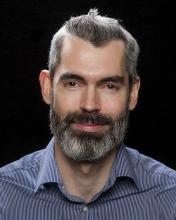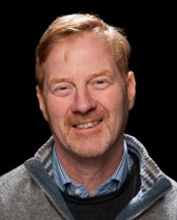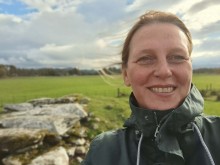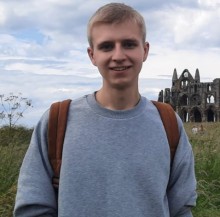Meet the Team

Editor
Dr Robert Witcher is Associate Professor in Archaeology at Durham University and a Fellow of the Society of Antiquaries of London. He studied for a BA and MA at Newcastle University and a PhD at the University of Leicester. He then worked as a post-doctoral researcher at the British School at Rome before joining the Archaeology Department at Durham in 2004. His principal research interests are Roman and landscape archaeology in Italy and the Mediterranean. Prior to becoming Editor, he was Reviews and Deputy Editor from 2013-2017.

Deputy Editor
Robin Skeates is a Professor in the Department of Archaeology at Durham University (UK), Fellow of the Society of Antiquaries of London, and Honorary Member of the European Association of Archaeologists. His research and publications explore a wide variety of themes within the overlapping fields of material, visual and sensual culture studies, and museum and heritage studies. His current collaborative projects include archaeological fieldwork at later prehistoric caves in Italy, and development work on museum education in Jordan. He has gained extensive editorial experience, particularly having served as General Editor of the European Journal of Archaeology for nine years.

Reviews Editor
Dr Marion Uckelmann is a researcher in the European Bronze Age, specialising in weaponry, warfare, mobility, metal working technologies and experimental archaeology. She received her PhD on Bronze Age shields from the Westfälische Wilhelms University in Münster, Germany. Previously she worked as editor at the Prähistorische Bronzefunde project and was a postdoctoral researcher at Exeter University. She is also the secretary of the Bronze Age Studies Group.

Editorial Manager
Lindsey has a history of academic journal management and publishing across a variety of research areas. Most recently, she worked as a Managing Editor for Cochrane, where she was responsible for the operational management of the editorial base and the editorial process for the preparation and publication of systematic reviews of healthcare interventions. Prior to this, she held a number of editorial and communication roles, including for journals such as Statistics in Medicine. She is a member of the International Society of Managing and Technical Editors.
Production Editor
Helen has worked as a sub-editor and production editor, in print and online, for various business-to-business publications, consumer magazines and professional journals.
Publications and websites include, in no particular order, PC Pro, Employers' Law, Take a Break, That’s Life!, Daily Mail Ski & Snowboard Magazine, Land Rover World, Electrical Design, Occupational Health at Work, Equal Opportunities Review, Personnel Today and XpertHR.co.uk, Horticulture Week, Design Week, General Practitioner, Management Today.
Helen also spent nearly two years as publications officer for a commercial archaeology practice and has an MA in Arts Management and Heritage Studies.
Assistant Editor
Abigail holds a PhD in Archaeology from University College Dublin and an MSc in Human Osteology and Palaeopathology from the University of Bradford. She has worked as a freelance editor and has sat on the editorial board for Trowel, the student journal of archaeology at University College Dublin. She has also assisted with excavations in Europe and the Middle East. Her research interests include human evolution, palaeopathology of the human skeleton, archaeothanatology, and the lifeways of the Linearbandkeramik in central Europe.

Public Engagement and Press Coordinator
Max holds a BA and MA in Archaeology from Durham University, during which he focused on the visual psychology of Palaeolithic Art. He then worked as Operations Administrator in Durham University Department of Archaeology, where he engaged in numerous public engagement activities. This included running the departmental social media and website, producing marketing materials and running open day events. He lead on producing outreach features such as alumni spotlights, research news and masters course highlights.

